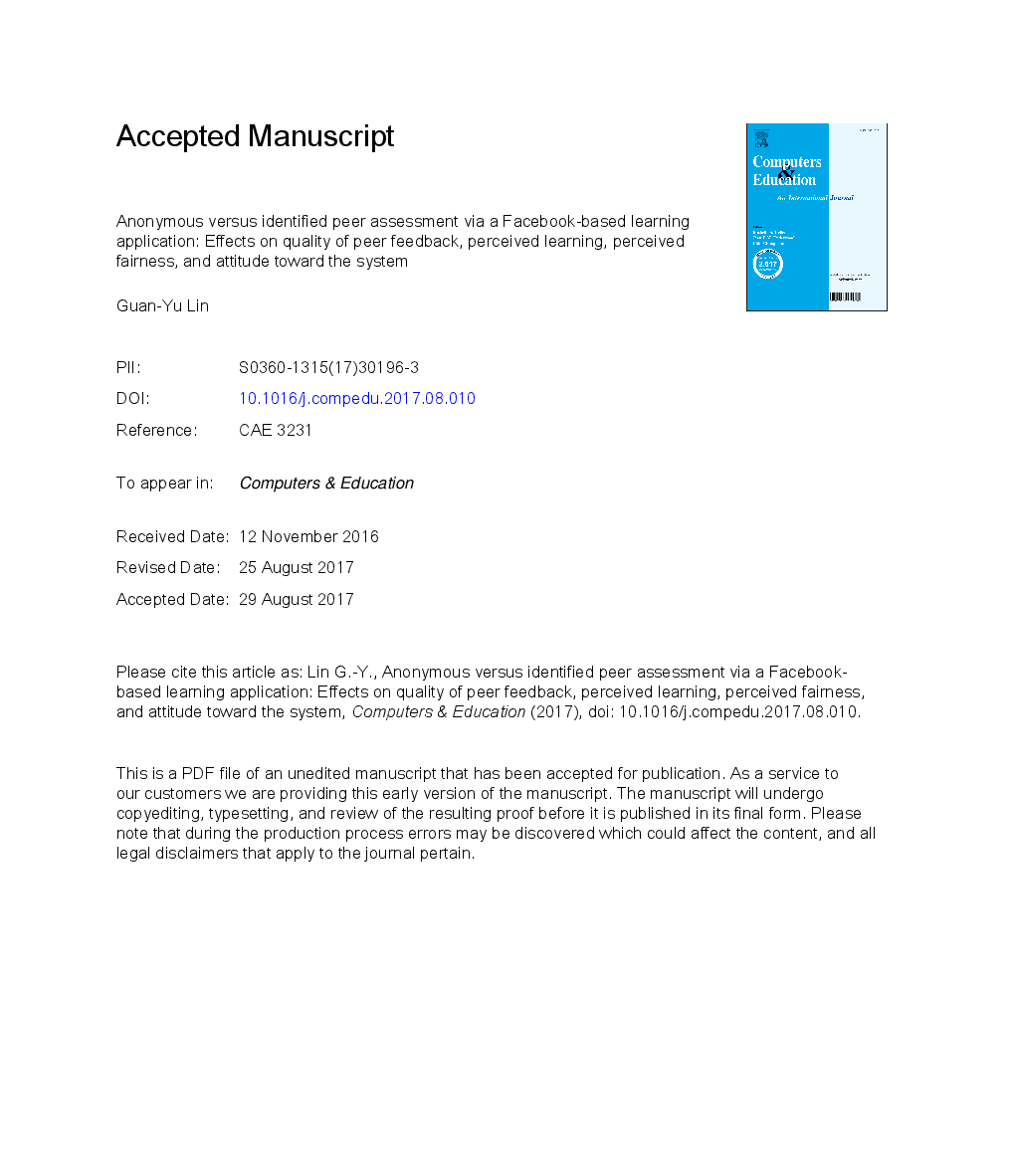ترجمه فارسی عنوان مقاله
ناشناس در مقابل ارزیابی همکارانه از طریق یک برنامه یادگیری مبتنی بر فیس بوک: تاثیر بر کیفیت بازخورد همکار، یادگیری درک شده، عدالت درک شده و نگرش نسبت به سیستم
عنوان انگلیسی
Anonymous versus identified peer assessment via a Facebook-based learning application: Effects on quality of peer feedback, perceived learning, perceived fairness, and attitude toward the system
| کد مقاله | سال انتشار | تعداد صفحات مقاله انگلیسی |
|---|---|---|
| 133661 | 2018 | 30 صفحه PDF |
منبع

Publisher : Elsevier - Science Direct (الزویر - ساینس دایرکت)
Journal : Computers & Education, Volume 116, January 2018, Pages 81-92
ترجمه کلمات کلیدی
استراتژی تدریس / یادگیری، بهبود آموزش در کلاس درس، محیط یادگیری تعاملی، تحصیلات تکمیلی،
کلمات کلیدی انگلیسی
Teaching/learning strategy; Improving classroom teaching; Interactive learning environments; Post-secondary education;

